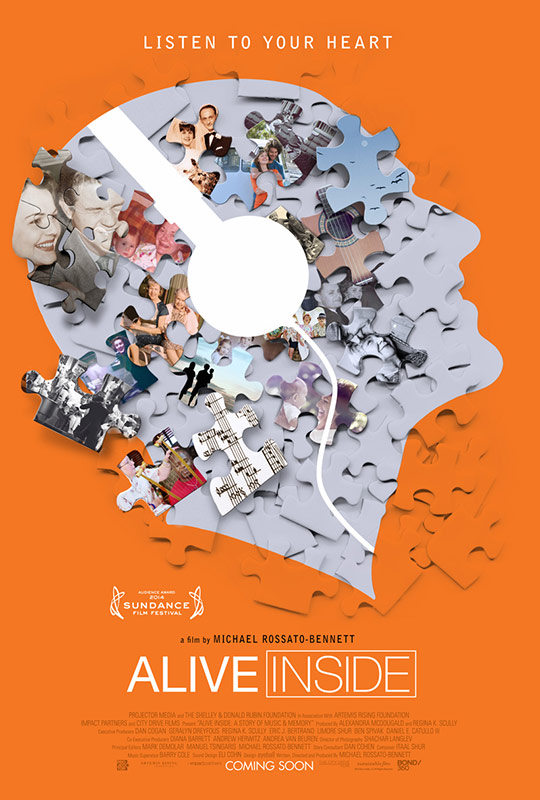A Music Therapist’s Perspective on “Alive Inside”

I’d been avoiding seeing the recent documentary “Alive Inside: A Story of Music and Memory” for many reasons. As a music therapist, I’ve been educating the public since I saw a clip depicting a man named Henry and his reaction while listening to his preferred music on an iPod went viral in 2012. The full documentary following social worker Dan Cohen and his quest to bring recorded music via iPods into the ears of older adults in nursing homes was released earlier this year in 2014.
Before the film even premiered, I had been on the receiving end of comments about “the guy with the iPod” when I told others about my work as a music therapist. Over those two years, I bit my tongue against people’s well-meaning, but misguided views on music therapy and developed quite a bias against the film. Upon finally viewing it I was happily impressed with many parts. However, many of my worries about the film had been founded.
Obviously, music therapy is much more than the “Music and Memory” certification program. Music therapists are trained to facilitate diverse, tailored music interventions to meet a clients’ measured goals and objectives. The American Music Therapy Association has put out a helpful guide which can been found HERE. Of course, the reactions and benefits for those depicted were genuinely beneficial to the well-being of participants of the film and those were valuable moments.
Below, I’ve outlined what I see as the good and bad of “Alive Inside” from my perspective as a music therapist working with older adults with memory loss and dementia:
PROs
- The film is a beautiful as a work of art. I found a nice balance between testimonials, simple neurologic explanations of music, and engaging narrative throughout.
- Our society’s reaction to aging and institutionalization of older adults is challenged, advocating for more individualized and person-centered care.
- Viewers are treated to heart-warming and emotional reactions as the film participants “light up” as they listen to music. This movie has raised the public’s overall awareness of music as a therapeutic modality.
CONs
- The differences between music therapy and the iPod listening program were not clearly distinguished. One quotation that bothered me included a medical professional who spoke about how “the music therapy” is beneficial. But without context about music therapy as a specialized profession, I feel viewers are misled (perhaps in an attempt to legitimize the iPods’ use)
- iPods can be isolating technology. While some participants were depicted with social worker Dan Cohen present and supporting their emotional reactions, I wonder how engaging the “Music and Memory” program is in everyday practice. If left unattended with a participant, an iPod might be harmful to a client’s well-being. Instead, music therapy is inherently engaging because it happens within a therapeutic relationship between the client and therapist.
- Only positive reactions are depicted in the film. Music can stir up unexpected or bad memories, and these reactions were not seen by viewers. The film did not appear to acknowledge music’s power for negative rumination or over-stimulation. Instead, music therapists are trained to respond and redirect the music in real time should this occur.
- I worry that those who are music volunteers or certified by the “Music and Memory” program will look to music therapy research to legitimize their incorrect (and ignorant) claims that they are providing music therapy. As awareness grows, so must the public’s understanding of the music therapy profession.
- I’m also concerned that facilities working with older adults will not look into hiring a music therapist after becoming certified in the “Music and Memory” program. While having a music therapist available everyday may be unreachable for some programs, decision-makers shouldn’t be satisfied with throwing some iPods indiscriminately toward the complex, holistic needs of their clients.
For more insight from those in the music therapy field, please consider reading this AMTA press release about working with the filmmakers and their view of the depictions of music therapy in the film.